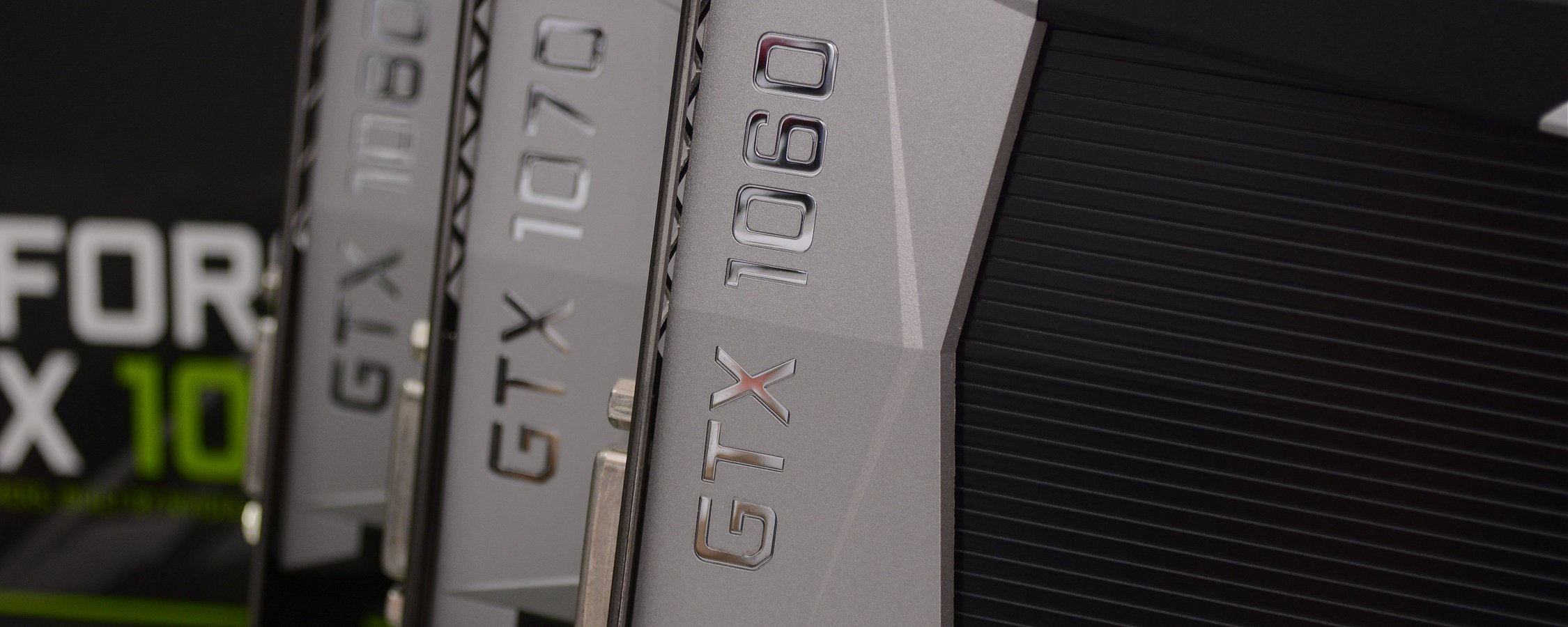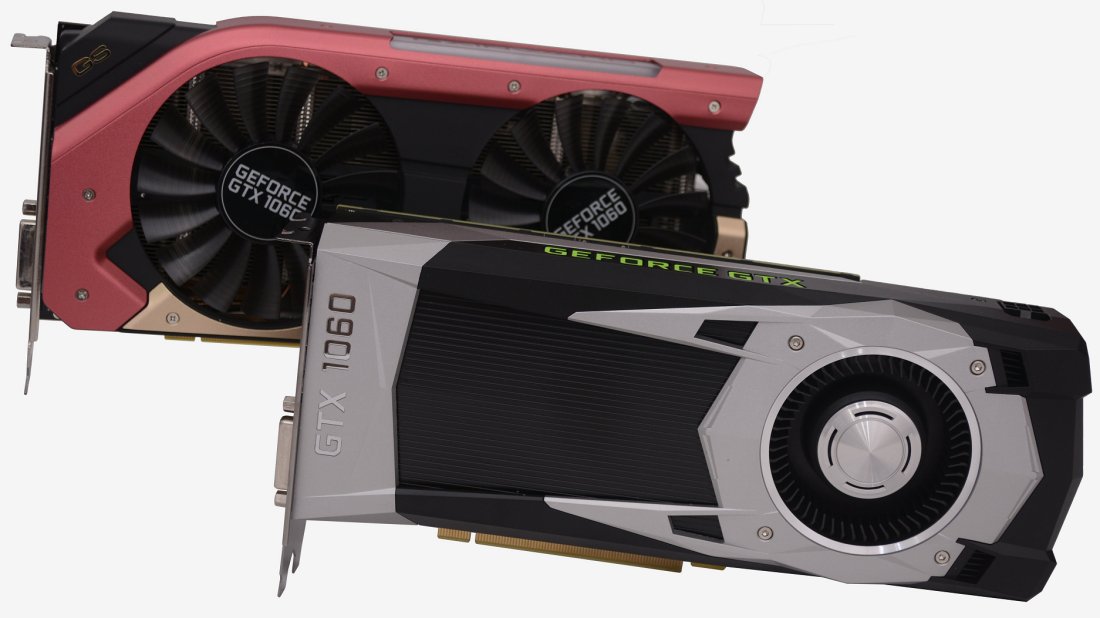Fast, Efficient, Good Value
As expected, the GeForce GTX 1060 is not only faster than the Radeon RX 480, it's also more efficient using ~30 to 50 watts less power. Case closed then, the GeForce GTX 1060 is better and you should buy it – if only it were that simple...
When the Radeon RX 480 arrived last month it left us with mixed feelings. The overall performance was good enough to play at 1440p and great at 1080p. The cost per frame also looked strong.
While I wouldn't go as far as saying there was a dealbreaker, we were hoping the 14nm process would hand AMD greater power savings than what was seen with the RX 480. Overclocking is also a value-adding feature and the RX 480 just didn't, though we noted this could change with board partner cards.
AMD made a heap of noise when announcing that the RX 480 would come in at just $200 with performance similar to an R9 390. However at launch we could only review the $240 8GB part. For an extra 20% over the 4GB model, we suspected gamers weren't going to see more than a few extra frames per second. Right now the instances where the 8GB model is notably faster than the 4GB model are far and few between.
We have now tested the RX 480 4GB model and can confirm there is no noticeable reduction in performance. So when it comes to shopping for the best value, you should most certainly save 20% off the sticker price and get the 4GB RX 480. At $200 AMD has a considerably stronger product on its hands as you are about to see from the cost per frame data.
| DirectX 11 | |||
|---|---|---|---|
| Product | Average | Retail Price | Cost per Frame |
| GeForce GTX 1070 (8GB) | 81 fps | $450 | $5.55 |
| GeForce GTX 1060 FE (6GB) | 58 fps | $300 MSRP | $5.17 |
| GeForce GTX 1060 (6GB) | 58 fps | $250 MSRP | $4.31 |
| GeForce GTX 960 (4GB) | 32 fps | $190 | $5.93 |
| Radeon RX 480 (8GB) | 52 fps | $240 | $4.61 |
| Radeon RX 480 (4GB) | 52 fps | $200 | $3.84 |
| Radeon R9 380 (4GB) | 35 fps | $190 | $5.42 |
Assuming the GTX 1060 board partner cards are going to hit the $250 MSRP shortly (we won't hold our breath) then they will come at a cost of $4.31 per frame based on our DX11 testing.
| DirectX 12 / Vulkan | |||
|---|---|---|---|
| Product | Average | Retail Price | Cost per Frame |
| GeForce GTX 1070 (8GB) | 84 fps | $450 | $5.35 |
| GeForce GTX 1060 FE (6GB) | 60 fps | $300 MSRP | $5.00 |
| GeForce GTX 1060 (6GB) | 60 fps | $250 MSRP | $4.16 |
| GeForce GTX 960 (4GB) | 35 fps | $190 | $5.42 |
| Radeon RX 480 (8GB) | 61 fps | $240 | $3.93 |
| Radeon RX 480 (4GB) | 61 fps | $200 | $3.27 |
| Radeon R9 380 (4GB) | 43 fps | $190 | $4.41 |
There isn't a great deal separating the GTX 1060 and the 8GB RX 480 in DirectX 12 performance, or price for that matter. However, if we look at the 4GB RX 480, the GTX 1060 costs 27% more, and that doesn't bode as well for the green team.
As for the Founders Edition at $300, the cost per frame data above speaks for itself. In a world where the 4GB RX 480 can be had for $200, the GTX 1060 can't afford to be priced any higher than $250. The GeForce GTX 1060 does have the advantage of being a slightly better overclocker, at least when comparing the AMD and Nvidia reference cards. It also has a notable advantage in power efficiency. So then, it seems like the Maxwell vs. GCN 3rd gen battle all over again.
In a world where the 4GB RX 480 can be had for $200, the GTX 1060 can't afford to be priced any higher than $250.
The recent arrival of the Vulkan API for Doom has clearly favored AMD's case. This AAA title, which also happens to be a popular first-person shooter, is probably the most significant game yet to adopt the low-level API.
Shortly after the RX 480 arrived, I already had the GTX 1060 on hand and I have to admit I was concerned about AMD's ability to compete with Nvidia's mid-range Pascal GPU. However, now that I've spent quite some time testing both products it's difficult to decide which way to lean.
Discovering that the 4GB RX 480 delivers the same performance as the 8GB version, coupled with the recent Doom update has swung things toward AMD's favor.
But one thing is for sure, it's impossible to go wrong with today's new mainstream GPUs. We're getting performance that used to cost at least twice as much less than a year ago. The coming months will be interesting to watch for this generation's GPU battle and the gaming industry as a whole as VR gaming proves itself with more affordable and capable graphics processors.
score
Pros: Cool operating temps, overclocks decently (better than competition), exceptional power efficiency. Strong DX11 performance. It's a really good value at $250 for partner boards.
Cons: The RX 480 4GB easily wins the cost per frame battle. Low-level API performance is concerning. No SLI support.

